
The Eclectic Charm of Ixelles
Ixelles, a vibrant neighbourhood in Brussels, Belgium, offers a delightful blend of cultures, architecture, and attractions that captivate every visitor. Known for its bohemian flair, Ixelles is home to an eclectic mix of art nouveau buildings and contemporary structures, reflecting the area's historical significance and modern dynamism. Wander through the picturesque streets of Ixelles and discover its numerous parks and green spaces, perfect for leisurely strolls or picnics. The stunning Ixelles Ponds provide a serene escape, while the bustling Flagey Square is the heart of the neighbourhood's social life, brimming with cafes, bars, and eateries offering both local and international cuisine. Ixelles is also a hub for art and culture enthusiasts. The area boasts a variety of galleries, theatres, and music venues, ensuring there's always something exciting to see and do. Don't miss the iconic Horta Museum, dedicated to the works of the renowned architect Victor Horta, a pioneer of the Art Nouveau movement. Shopping in Ixelles is a unique experience, with a mix of high-end boutiques, vintage shops, and local markets. The Avenue Louise and Rue du Bailli are particularly popular for their diverse retail offerings. Whether you're looking for fashion, antiques, or gourmet treats, Ixelles has something for everyone.
Local tips in Ixelles
- Visit the Ixelles Ponds early in the morning for a peaceful experience and great photo opportunities.
- Flagey Square is the place to be for nightlife and dining; try the local Belgian beers at one of the many bars.
- Explore the Horta Museum on a weekday to avoid the crowds and fully appreciate the intricate designs.
- Check out the local markets, such as the Place du Châtelain market on Wednesdays, for fresh produce and unique finds.
- Wear comfortable shoes as the neighbourhood is best explored on foot, with many hidden gems to discover along the way.
The Eclectic Charm of Ixelles
Ixelles, a vibrant neighbourhood in Brussels, Belgium, offers a delightful blend of cultures, architecture, and attractions that captivate every visitor. Known for its bohemian flair, Ixelles is home to an eclectic mix of art nouveau buildings and contemporary structures, reflecting the area's historical significance and modern dynamism. Wander through the picturesque streets of Ixelles and discover its numerous parks and green spaces, perfect for leisurely strolls or picnics. The stunning Ixelles Ponds provide a serene escape, while the bustling Flagey Square is the heart of the neighbourhood's social life, brimming with cafes, bars, and eateries offering both local and international cuisine. Ixelles is also a hub for art and culture enthusiasts. The area boasts a variety of galleries, theatres, and music venues, ensuring there's always something exciting to see and do. Don't miss the iconic Horta Museum, dedicated to the works of the renowned architect Victor Horta, a pioneer of the Art Nouveau movement. Shopping in Ixelles is a unique experience, with a mix of high-end boutiques, vintage shops, and local markets. The Avenue Louise and Rue du Bailli are particularly popular for their diverse retail offerings. Whether you're looking for fashion, antiques, or gourmet treats, Ixelles has something for everyone.
Iconic landmarks you can’t miss
Mount of the Arts
Explore the breathtaking Mount of the Arts in Brussels, a cultural hub brimming with history, stunning views, and artistic treasures.
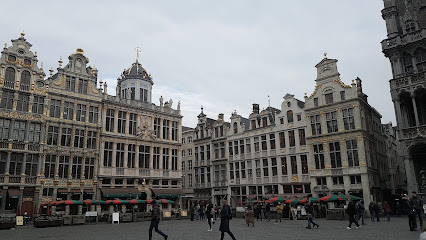
Ixelles Ponds
Experience the tranquil charm of Ixelles Ponds, a serene escape in Brussels, perfect for relaxation, nature walks, and picturesque views.
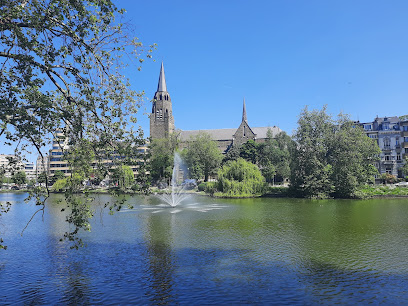
Birthplace of Audrey Hepburn
Visit the birthplace of Audrey Hepburn, the legendary actress and humanitarian, in the charming Ixelles neighborhood of Brussels, Belgium.
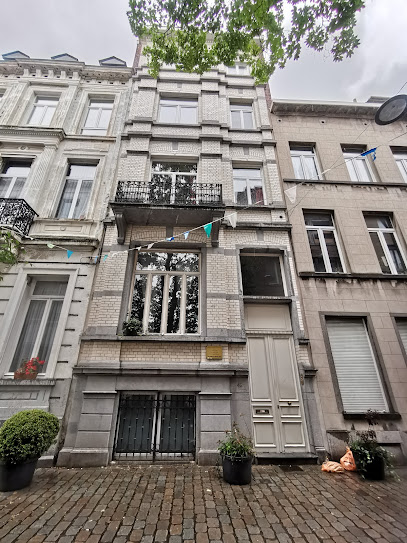
Saint-Boniface square
Experience the vibrant heart of Ixelles at Saint-Boniface Square: a culinary melting pot with a lively atmosphere and stunning architecture.
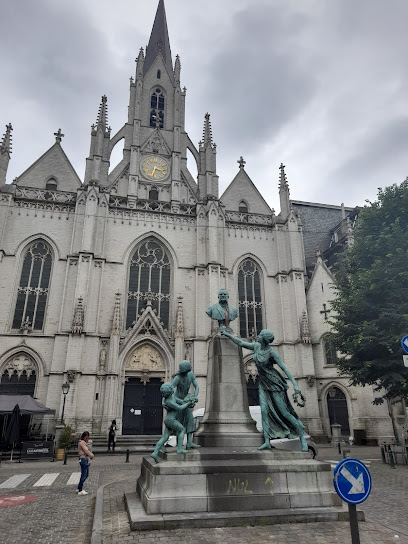
Square Châtelaillon-Plage
Experience the charm of Square Châtelaillon-Plage, a serene city park in Ixelles, perfect for relaxation, community gatherings, and leisurely strolls.
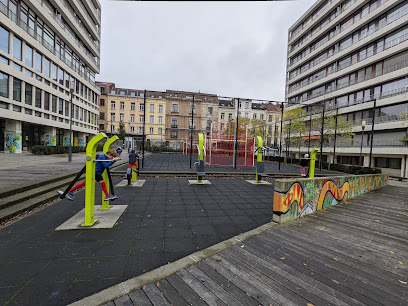
Standbeeld van Generaal Brialmont
Explore the historic Standbeeld van Generaal Brialmont, a monumental tribute to military heritage in the heart of Brussels with stunning architecture and vibrant surroundings.

Monument à Charles De Coster
Explore the Monument à Charles De Coster in Ixelles, a stunning tribute to Belgium's literary heritage and cultural identity.
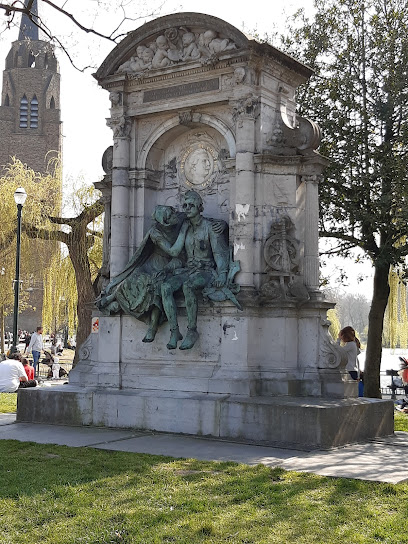
Monument aux Pionniers Coloniaux d'Ixelles
Discover the historical significance of the Monument aux Pionniers Coloniaux d'Ixelles in Brussels, a powerful tribute to Belgium's colonial past.
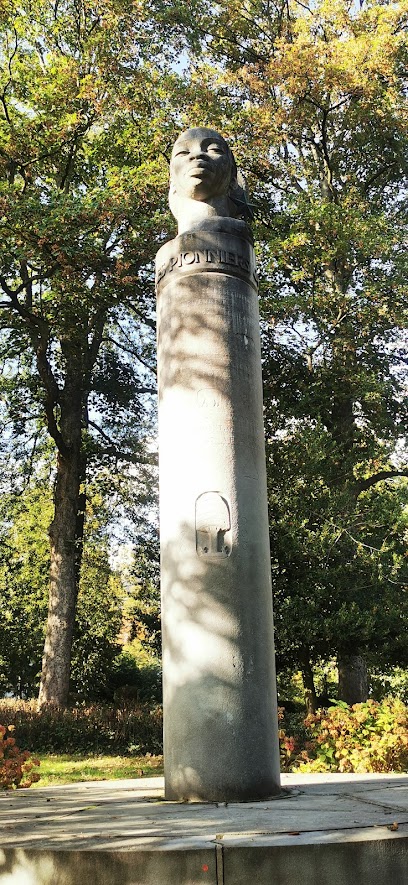
Parcours BD La femme léopard
Explore the vibrant comic art of Ixelles at Parcours BD La femme léopard, where street art and storytelling come alive in Belgium's artistic heart.
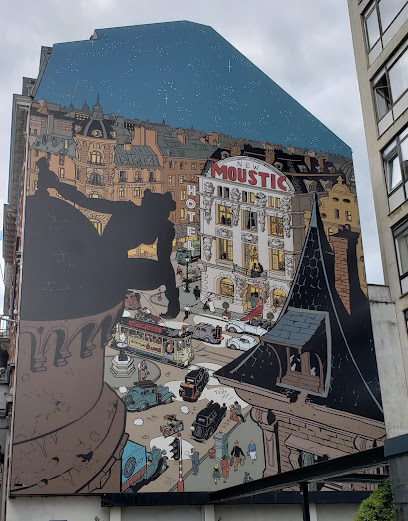
Puits aux lévriers
Puits aux lévriers: A serene escape in Ixelles, Brussels, blending nature, culture, and community for a perfect travel experience.
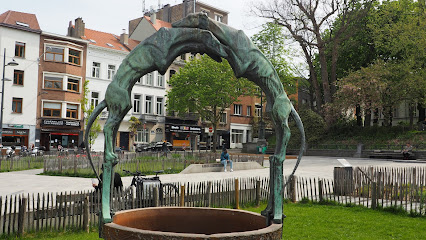
Unmissable attractions to see
Horta Museum
Explore the stunning Horta Museum, a masterpiece of Art Nouveau architecture in Brussels, showcasing Victor Horta's innovative designs and artistic legacy.
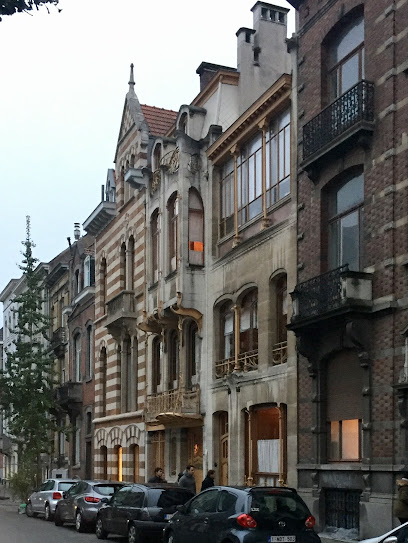
Ixelles Ponds
Escape the city bustle at Ixelles Ponds, a historic and picturesque green space in the heart of Brussels.
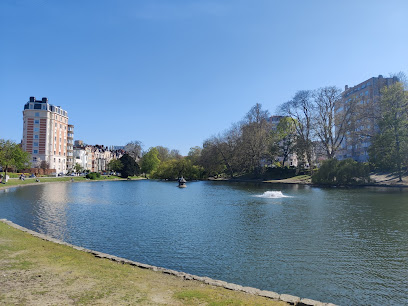
Children's Museum Brussels
Interactive exhibits and workshops spark curiosity and learning for children aged 6-12 in a playful environment.
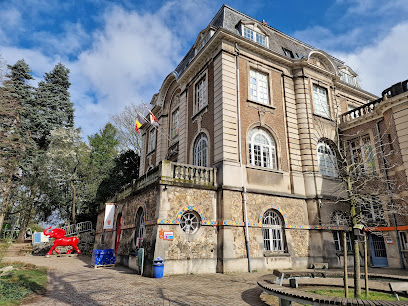
Monument à Charles De Coster
A tribute to Charles De Coster in Ixelles, celebrating the spirit of Flanders through his iconic characters, Thyl Ulenspiegel and Nele.
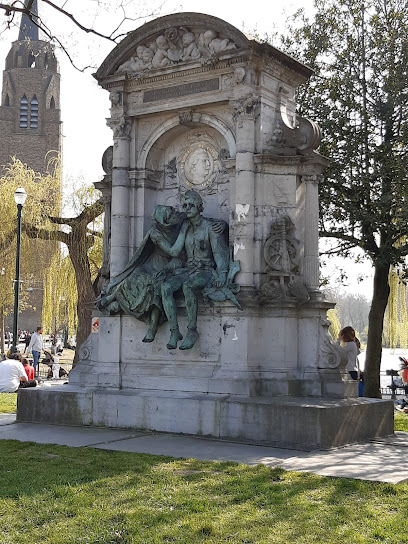
Puits aux lévriers
Explore the serene beauty of Puits aux lévriers in Ixelles, a tranquil oasis rich in history and culture, perfect for an afternoon escape in Brussels.
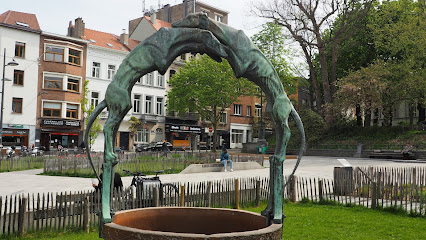
Essential places to dine
Mano à Mano
Experience authentic Italian cuisine at Mano à Mano in Ixelles – where every dish tells a story of tradition and flavor.
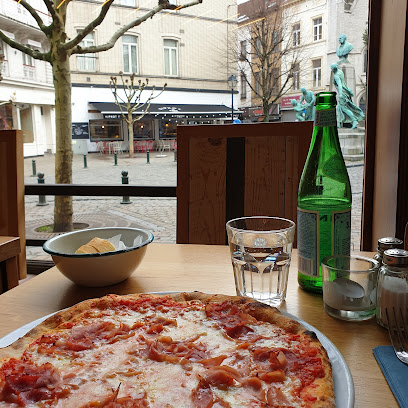
L'Improbable
Discover the exquisite flavors of modern French cuisine at L'Improbable, where each dish is a delightful culinary journey.
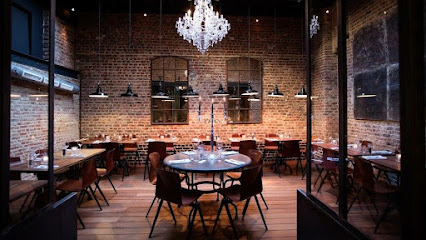
Les Fils À Maman
Discover the heartwarming flavors of Les Fils À Maman in Ixelles – where nostalgia meets modern culinary artistry.
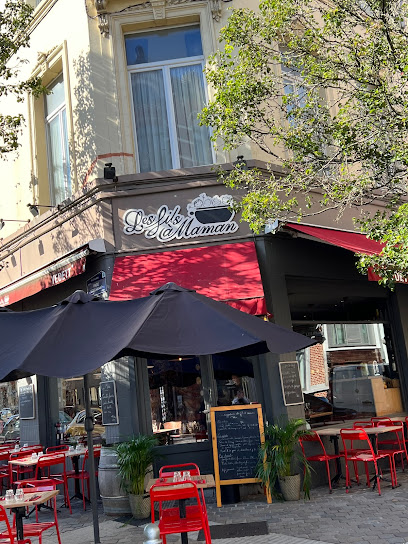
ZouZou Brussels
Experience the best of Belgian cuisine at ZouZou Brussels in Ixelles—where fresh ingredients meet culinary creativity.
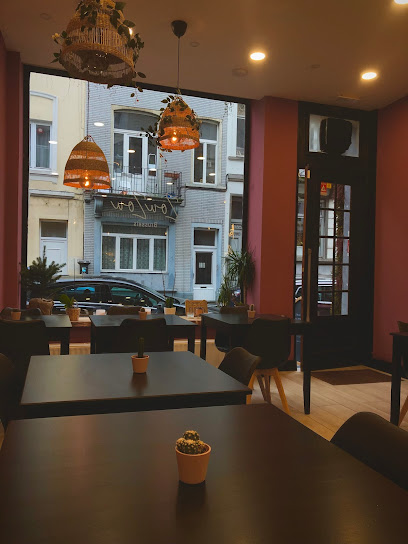
Saint Boniface
Experience authentic French cuisine at Saint Boniface in Ixelles, where each dish tells a story of flavor and tradition.
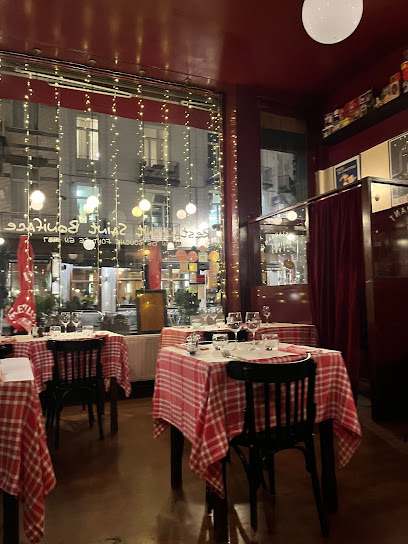
Les Caves d'Alex
Experience exquisite modern French cuisine at Les Caves d'Alex in Ixelles—where tradition meets innovation in every dish.
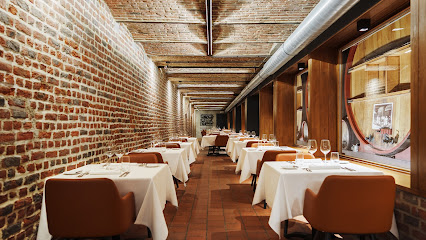
Artisauce
Discover Artisauce in Ixelles – where modern French cuisine meets exquisite dining experiences.
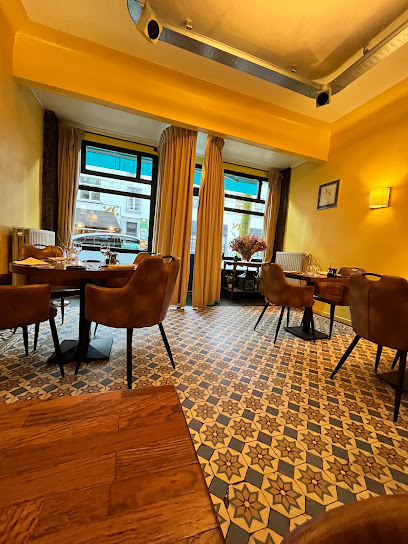
Miranda
Experience authentic Italian cuisine at Miranda in Ixelles - where culinary excellence meets fine dining ambiance.
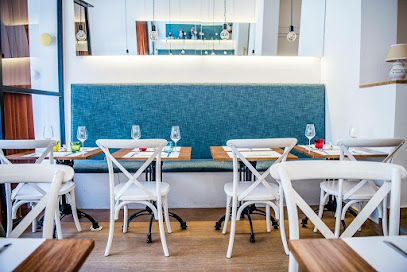
Nena Grill
Experience the rich flavors of barbecue and Belgian cuisine at Nena Grill in Ixelles – where every meal is a celebration.
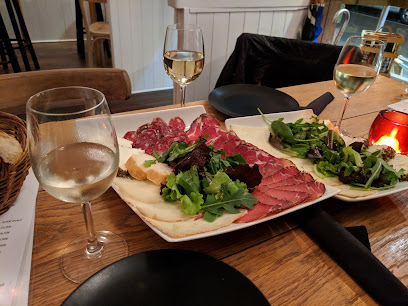
Feta&Oregano Ixelles
Experience authentic Greek cuisine at Feta&Oregano Ixelles – where every dish tells a story of tradition and flavor.
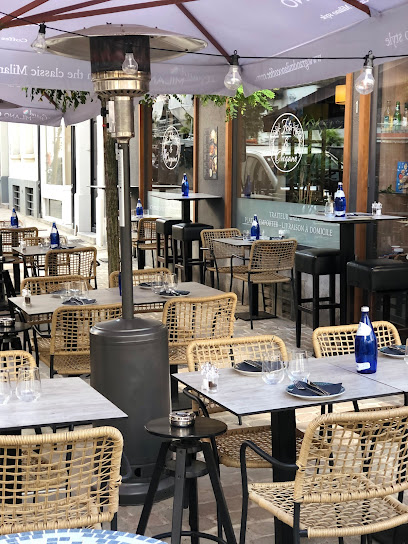
Markets, malls and hidden boutiques
Urban Outfitters
Discover Urban Outfitters in Ixelles, where fashion meets eclectic gifts and trendy home decor in a vibrant shopping experience.
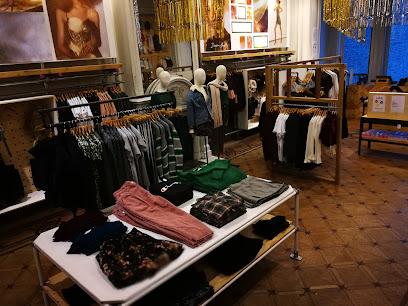
Flying Tiger Copenhagen
Explore Flying Tiger Copenhagen in Brussels for unique gifts, fun accessories, and a whimsical shopping experience that captures the spirit of creativity.
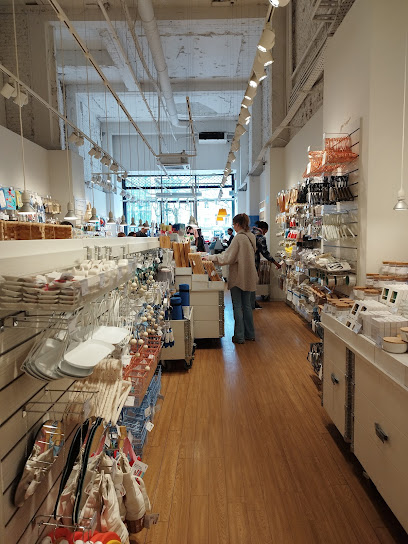
CASA Elsene
Discover CASA Elsene in Ixelles, a unique gift shop offering exquisite home goods, furniture, and more for an unforgettable shopping experience.
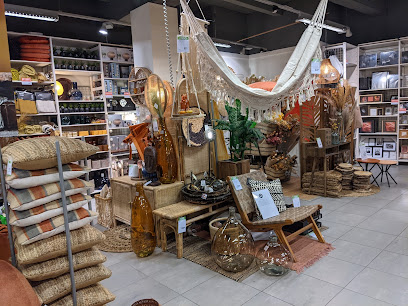
StreetShop
Explore the vibrant cannabis culture at StreetShop in Ixelles, where quality meets community in a welcoming atmosphere.
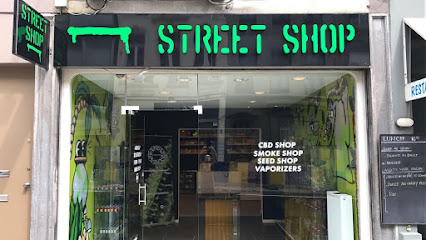
Rose
Explore Rose Gift Shop in Brussels for unique souvenirs and gifts that capture the essence of Belgium's rich culture and artistry.
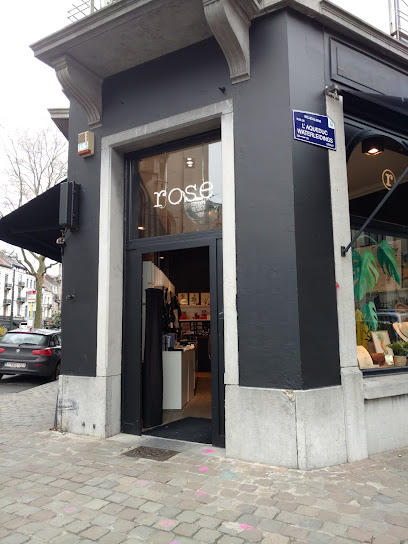
Pop & Shop
Explore the essence of local Belgian fashion at Pop & Shop, a boutique in Ixelles featuring unique clothing and accessories from talented designers.
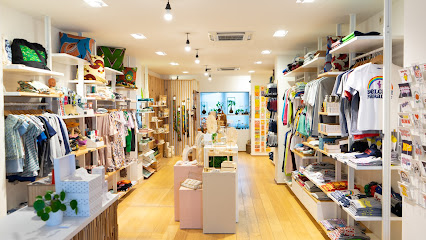
Kalamity vintage store
Explore unique vintage fashion at Kalamity Vintage Store in Ixelles, where every piece tells a story and style comes alive.
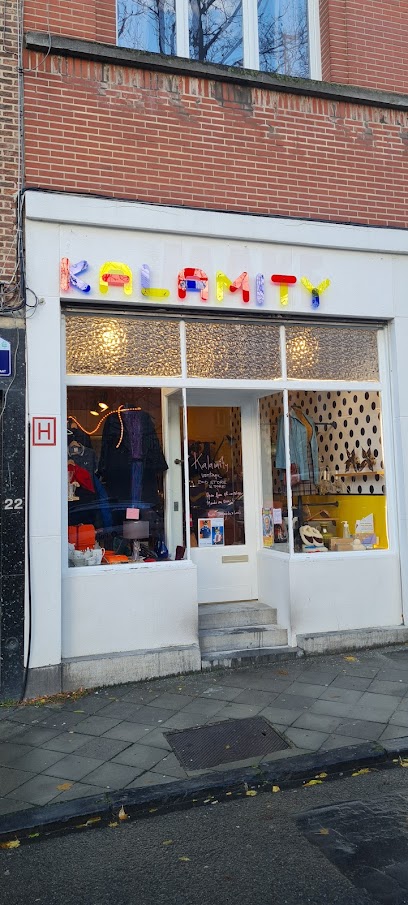
Behind Shop
Discover unique gifts and local treasures at Behind Shop in Ixelles, a charming gift shop that captures the essence of Belgian creativity.
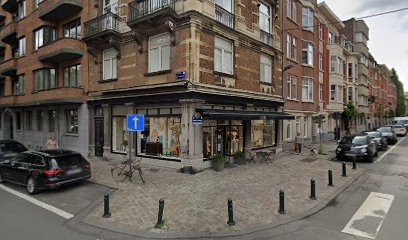
Boutique
Explore Ixelles' Boutique Gift Shop for unique handcrafted treasures and local artistry, perfect for memorable souvenirs and gifts.
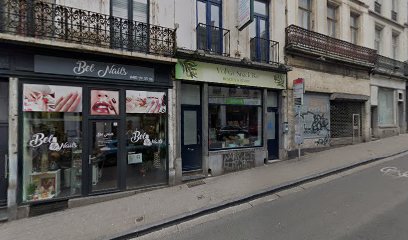
HEMA
Shop at HEMA in Brussels for a unique blend of gifts, fashion, and home essentials, reflecting Belgian charm and style.
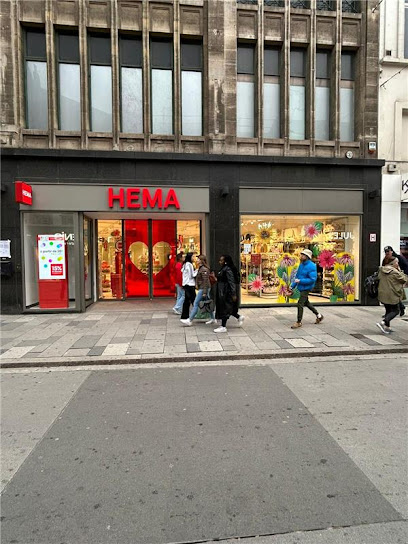
Essential bars & hidden hideouts
L'Amère à Boire
Experience the vibrant atmosphere and unique craft beers of L'Amère à Boire, the heart of Ixelles' nightlife.
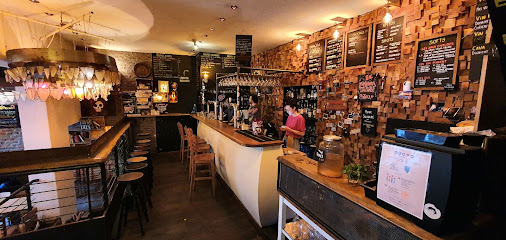
Le Stoefer
Experience the vibrant nightlife of Ixelles at Le Stoefer, a cocktail bar offering exquisite drinks and a lively atmosphere.
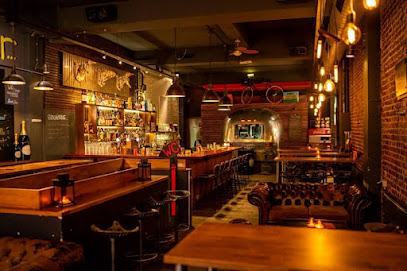
Le Gauguin
Discover Le Gauguin: A lively bar in Ixelles, Brussels, offering a vibrant atmosphere and delightful drinks at affordable prices.
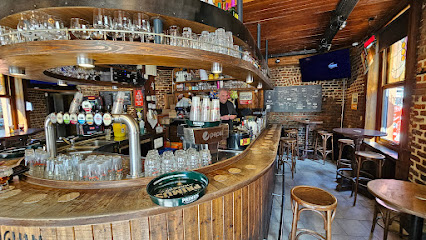
De Haus
Experience the vibrant nightlife of Ixelles at De Haus, a cocktail bar offering innovative drinks and a stylish atmosphere for an unforgettable evening.
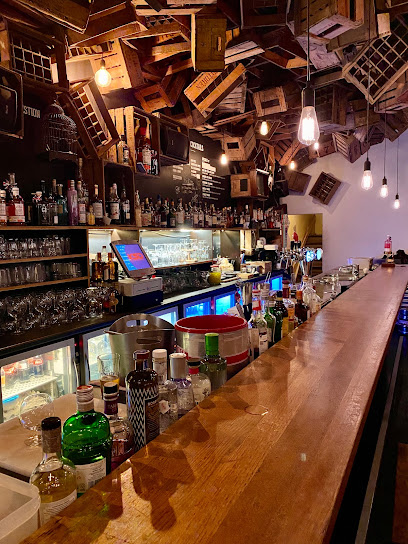
The Bar Ixelles
Experience the lively atmosphere at The Bar Ixelles, a perfect blend of cocktails, beers, and sports in the heart of Brussels.
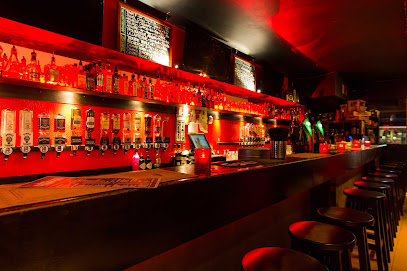
FLIP
Discover FLIP in Ixelles: Affordable drinks, lively atmosphere, and a great place to connect with locals and travelers alike.
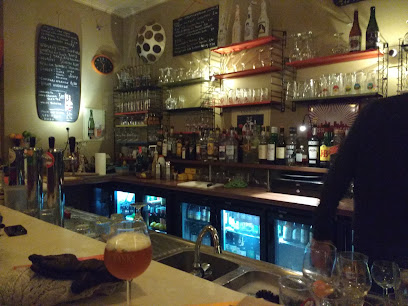
Pitch Pin
Experience the vibrant atmosphere of Pitch Pin, a top bar in Brussels, where local flavors and friendly vibes make for an unforgettable night out.
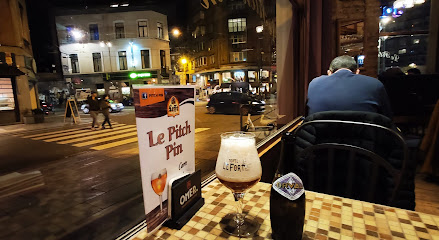
Vertical
Discover the chic atmosphere and expertly crafted cocktails at Vertical, Ixelles' premier cocktail bar for an unforgettable night out.
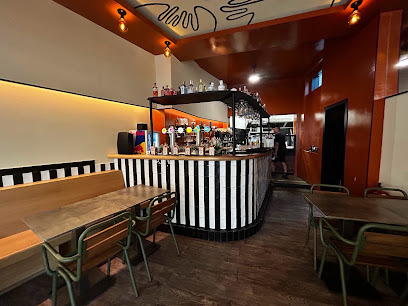
Lyh's Bar
Discover the vibrant nightlife at Lyh's Bar in Ixelles, where eclectic drinks meet a lively atmosphere in the heart of Brussels.
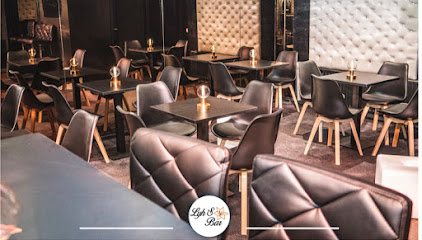
The Vegas Bar
Experience the vibrant nightlife of Ixelles at The Vegas Bar, where delicious drinks and a lively atmosphere await every visitor.
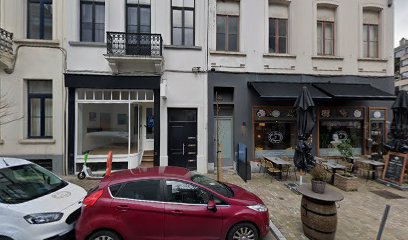
Local Phrases
-
- HelloBonjour
[bon-zhoor] - GoodbyeAu revoir
[oh rev-wahr] - YesOui
[wee] - NoNon
[nohn] - Please/You're welcomeS'il vous plaît/De rien
[seel voo pleh/duh ryen] - Thank youMerci
[mehr-see] - Excuse me/SorryExcusez-moi/Désolé
[ex-kew-zay mwah/deh-zoh-lay] - How are you?Comment ça va?
[koh-mon sah vah] - Fine. And you?Bien. Et vous?
[byen. ay voo] - Do you speak English?Parlez-vous anglais?
[par-lay voo ahn-glay] - I don't understandJe ne comprends pas
[zhuh nuh kohm-prahnd pah]
- HelloBonjour
-
- I'd like to see the menu, pleaseJe voudrais voir la carte, s'il vous plaît
[zhuh voo-dray vwahr lah kart, seel voo pleh] - I don't eat meatJe ne mange pas de viande
[zhuh nuh mahnj pah duh vyand] - Cheers!Santé!
[sahn-tay] - I would like to pay, pleaseJe voudrais payer, s'il vous plaît
[zhuh voo-dray pay-ay, seel voo pleh]
- I'd like to see the menu, pleaseJe voudrais voir la carte, s'il vous plaît
-
- Help!Au secours!
[oh suh-koor] - Go away!Allez-vous en!
[ah-lay voo zan] - Call the Police!Appelez la police!
[ah-puh-lay lah poh-lees] - Call a doctor!Appelez un médecin!
[ah-puh-lay uh meh-duh-san] - I'm lostJe suis perdu
[zhuh swee pair-doo] - I'm illJe suis malade
[zhuh swee mah-lahd]
- Help!Au secours!
-
- I'd like to buy...Je voudrais acheter...
[zhuh voo-dray ah-shuh-tay] - I'm just lookingJe regarde juste
[zhuh ruh-gard juhst] - How much is it?Combien ça coûte?
[kohm-byen sah koot] - That's too expensiveC'est trop cher
[say troh shair] - Can you lower the price?Pouvez-vous baisser le prix?
[poo-vay voo beh-say luh pree]
- I'd like to buy...Je voudrais acheter...
-
- What time is it?Quelle heure est-il?
[kell uhr ay teel] - It's one o'clockIl est une heure
[eel ay tewn uhr] - Half past (10)Dix et demi
[dee ay duh-mee] - MorningMatin
[mah-tan] - AfternoonAprès-midi
[ah-pray-mee-dee] - EveningSoir
[swahr] - YesterdayHier
[ee-air] - TodayAujourd'hui
[oh-zhoor-dwee] - TomorrowDemain
[duh-mahn] - 1Un
[uhn] - 2Deux
[duh] - 3Trois
[twah] - 4Quatre
[kah-truh] - 5Cinq
[sank] - 6Six
[sees] - 7Sept
[sept] - 8Huit
[wheat] - 9Neuf
[nuff] - 10Dix
[dee]
- What time is it?Quelle heure est-il?
-
- Where's a/the...?Où est...?
[oo ay] - What's the address?Quelle est l'adresse?
[kell ay la-dress] - Can you show me (on the map)?Pouvez-vous me montrer (sur la carte)?
[poo-vay voo muh mohn-tray (soor lah kart)] - When's the next (bus)?Quand est le prochain (bus)?
[kond ay luh proh-shang (bus)] - A ticket (to ....)Un billet (pour...)
[uhn bee-yay (poor)]
- Where's a/the...?Où est...?
History of Ixelles
-
Ixelles, located just south of the Brussels city center, has origins that trace back to the early Middle Ages. The area was initially a rural settlement, with its name believed to derive from the Latin term 'Excellentes,' referring to the fertile lands around the Ixelles Lacs. By the 12th century, it had developed into a small village, which was part of the Duchy of Brabant.
-
In the 19th century, Ixelles experienced significant growth due to the industrial revolution. The establishment of factories and the arrival of the railway transformed it from a quiet village into a bustling suburb of Brussels. This period saw the construction of many beautiful Art Nouveau buildings, with architects like Victor Horta influencing the architectural style of the area.
-
Throughout the 20th century, Ixelles became a vibrant cultural melting pot, attracting a diverse population, including immigrants from various countries. This demographic shift has contributed to a rich tapestry of cultures, reflected in the local cuisine, festivals, and markets. The Flagey Square area became a hub for cultural activities, including music and art, highlighting Ixelles' role in the broader cultural landscape of Brussels.
-
Ixelles has a history of political activism and social movements, particularly in the late 20th and early 21st centuries. The neighborhood has been at the forefront of various social issues, including housing rights and multiculturalism, reflecting the broader societal changes within Brussels. The local community has actively engaged in discussions regarding integration and the preservation of cultural diversity.
-
Today, Ixelles is recognized for its dynamic atmosphere, combining traditional Belgian culture with modern influences. The neighborhood hosts various markets, such as the Matongé district, known for its African shops and eateries, alongside classic Belgian cafes. Ixelles remains a vital part of Brussels, with its blend of history, culture, and contemporary life attracting both locals and tourists alike.
Ixelles Essentials
-
Ixelles is well-connected to other neighborhoods in Brussels. You can easily access Ixelles via public transport. The Brussels Metro has several stations in and around Ixelles, including Louise and Trinité, which are serviced by Line 2 and Line 6. Tram lines 81 and 82 also run through the area. If you're coming from Brussels Central, you can take tram 81 directly to Ixelles. Buses are another option, with routes that connect to major points in the city.
-
Ixelles is a pedestrian-friendly neighborhood, making it easy to explore on foot. For longer distances, the Brussels public transportation system, which includes buses, trams, and metro, is efficient. Biking is also popular; you can rent bicycles through the Villo! bike-sharing system available throughout the city. Taxis and rideshare services are readily available for those who prefer a more direct route.
-
Ixelles is generally safe for tourists, but like in any urban area, it is wise to stay alert. Certain parts, especially around the Flagey area at night, can have higher incidents of petty crime, such as pickpocketing. Avoid displaying valuables and be cautious in crowded places. It's advisable to refrain from wandering alone late at night in less populated areas.
-
In case of an emergency, dial 112 for police, fire, or medical assistance. The nearest hospital is the Cliniques Universitaires Saint-Luc, located just a short distance from Ixelles. For minor health issues, pharmacies are available throughout the neighborhood. Ensure you have travel insurance that covers medical emergencies.
-
Fashion: Do dress casually but neatly; Ixelles has a trendy vibe. Avoid wearing overly revealing clothing. Religion: Do respect local customs, especially in churches; modest attire is appreciated. Public Transport: Do maintain a quiet demeanor and yield seats to those in need. Don't eat or drink on public transport. Greetings: Do greet with a friendly 'Bonjour' or 'Salut.' A handshake is common. Eating & Drinking: Do try local specialties like waffles and frites. Don’t refuse offers of food or drink, as it can be viewed as impolite.
-
To experience Ixelles like a local, explore the vibrant markets such as the Ixelles Ponds and the Flagey Market on Sundays. Try to visit local bars and cafes that serve traditional Belgian beers and enjoy the lively atmosphere. Engaging with locals is encouraged; they are often happy to share insights about the neighborhood’s history and culture. Don’t miss the beautiful Art Nouveau architecture scattered throughout the area, and take a stroll through the Ixelles Cemetery for a peaceful retreat.
Nearby Cities to Ixelles
-
Things To Do in Mechelen
-
Things To Do in Leuven
-
Things To Do in Louvain-la-Neuve
-
Things To Do in Aalst
-
Things To Do in Antwerp
-
Things To Do in Ghent
-
Things To Do in Mons
-
Things To Do in Namur
-
Things To Do in Hasselt
-
Things To Do in Tournai
-
Things To Do in Dinant
-
Things To Do in Kortrijk
-
Things To Do in Genk
-
Things To Do in Liege
-
Things To Do in Bruges













